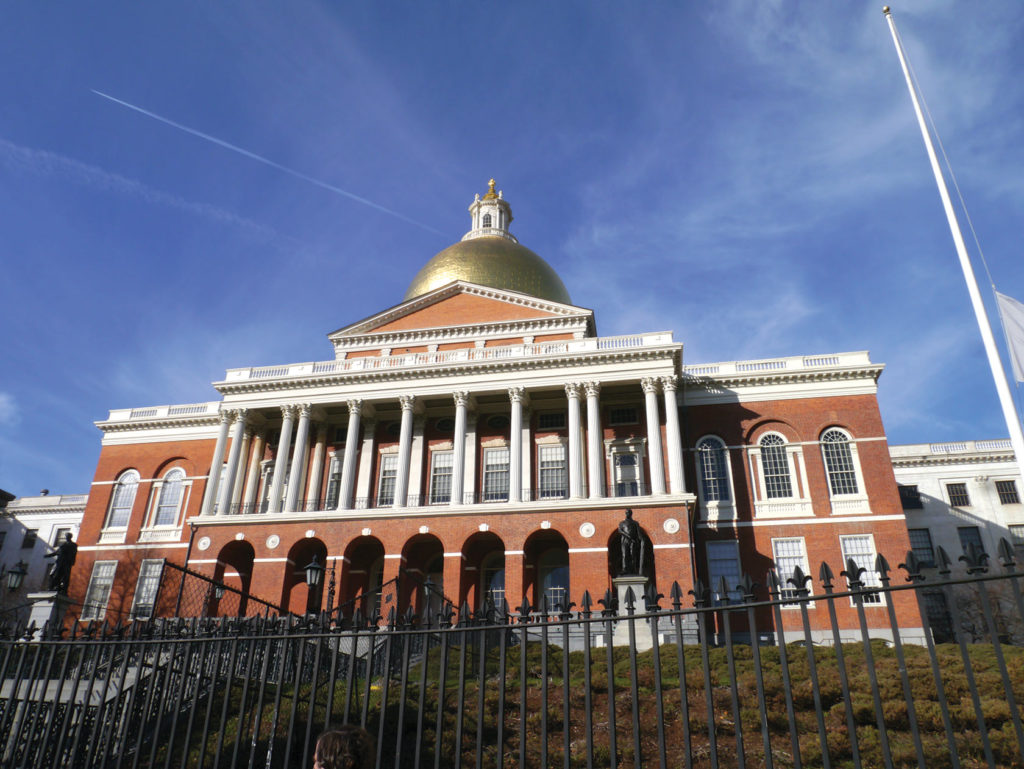Legislators release tax cut proposals
Increased tax credits, one-time tax rebate included in $1 billion package

Massachusetts legislative leadership on Monday announced more than $1 billion in tax cuts aimed at countering the effects of rising costs in the state.
The package, which in many ways mirrors tax cut proposals released by Gov. Charlie Baker earlier this year, would include $500 million on one-time tax rebates of $250 for Massachusetts residents earning between $38,000 and $100,000, but exclude lower-income tax payers.
The tax cuts come as the state’s coffers are buoyed by a revenue surplus and $5.3 billion in federal American Rescue Plan Act (ARPA) funding, much of which remains unspent. It also comes as many Massachusetts residents are struggling with higher rents, fuel and food costs spurred by global shortages and rising inflation.
In addition to the tax rebates, the package House leaders announced would include provisions aimed at reducing taxes for working families including:
• An increase in the Earned Income Tax Credit — which applies to familes earning less than $57,000 — from 30% of the federal credit to 40%.
• An increase in the tax break for seniors to $1,755, up from $750.
• An increase in the rent deduction cap from $3,000 to $4,000.
• An increase in the child tax credit from $180 per child to $310 per child along with the elimination of the two-child cap.
Additionally, the House bill would increase the threshold for the estate tax, which currently is triggered at $1 million and applies to the full amount. Under the House proposal, the threshold would increase to $2 million and the tax would only apply to any amount in excess of $2 million.
Legislators departed from Baker’s proposal on capital gains taxes. While most investment income is taxed at 5%, the same rate at which wages are taxed, the tax rate can go as high as 12% for short-term capital gains. Baker sought to slash that rate to 5%. Legislators offered no such reduction.
Still, Jamaica Plain Democrat Nika Elugardo, who represents the 15th Suffolk District in the House, said the state’s tax system remains a regressive system in which lower-income residents pay a higher percentage of their income than wealthier residents.
“The budget shows we’re trying to provide even relief over the spectrum of incomes,” she said. “My value is different — it’s to provide relief that’s much heavier at the lower end of the income spectrum and much lighter at the top.”
While the federal income tax is progressive, with higher income earners paying a greater percentage of their earnings in taxes, Massachusetts has a flat tax rate of 5%. Combined with property taxes, the sales tax and other local taxes and fees, the flat tax rate means lower income people in Massachusetts pay 10% of their income in taxes whereas the top 1% of earners pay 6.8%, according to a report by the Massachusetts Budget and Policy Center.
Another Baker proposal legislators declined to pursue would have increased the threshold for taxable income from $8,000 a year to $12,400 for single filers.
Lew Finfer, founder and senior issues advisor for the Massachusetts Communities Action Network, said the tax cuts could have an impact on future state budgets if there’s an economic downturn, a scenario that played out after the administrations of governors William Weld and Paul Cellucci pushed through tax cuts during economic boom times, only to see billions erased from the state budget as the economy went into recessions in 2001 and 2008.
“It’s not going to be like this forever,” Finfer said of the current economic state. “The world economic picture is certainly not looking good.”
One new stream of revenue that may hit the state’s coffers is the Fair Share Amendment — the so-called millionaires tax — which would place a 4% surtax on all income above $1 million in Massachusetts. Voters will weigh in on the constitutional amendment in November, when it will appear as ballot question 1. Polling has so far shown Massachusetts voters in favor of the measure.
The amendment calls for revenue from the tax to be dedicated to K-12 and public higher education and transportation. Finfer said the revenue from the millionaires tax would go a long way toward meeting the Legislature’s obligation to increase K-12 funding as part of the Student Opportunity Act, which calls on the state to increase spending by $300 million a year over seven years.
“We don’t anticipate the state being able to meet that in the coming years unless the Fair Share Amendment passes,” he said.







